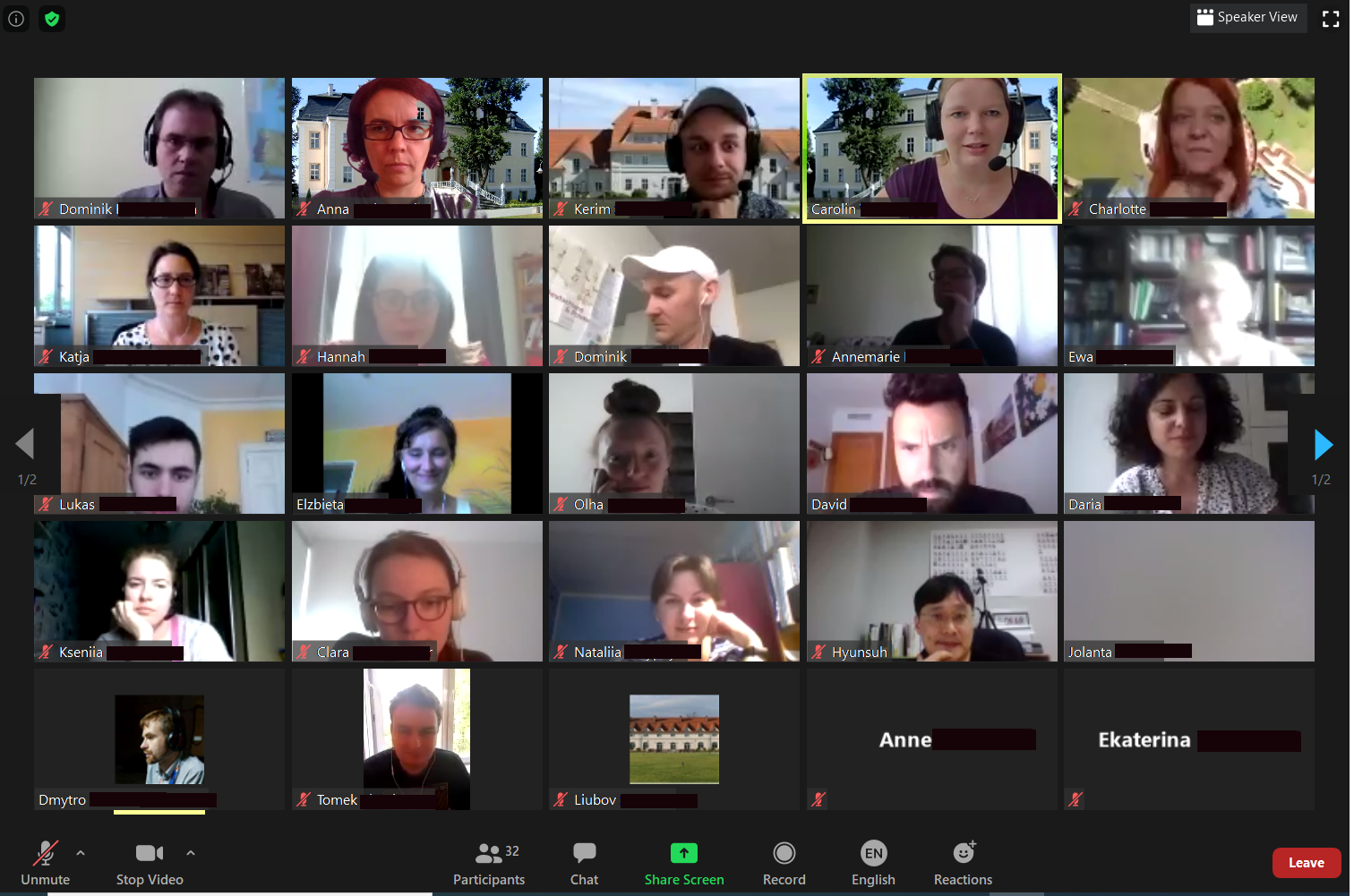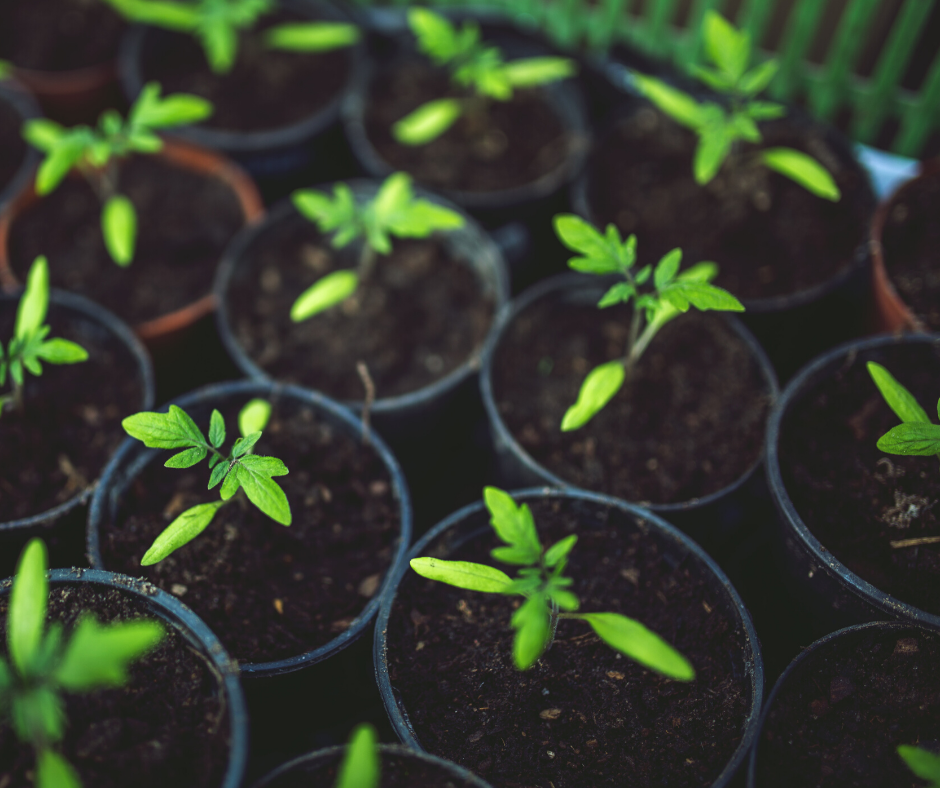 Krzyżowa Foundation for Mutual Understanding in Europe has been in existence for over 30 years, building civil society and working for dialogue between nations. However, this year the coronavirus pandemic has called into question the possibility of its further functioning. Almost all projects that were to take place in the first half of 2020 and in which almost 3,000 people were to participate were canceled. This deprived the Foundation of a significant part of its revenues and only thanks to the support of the Polish, German and local governments, our partners and donors we managed to survive this, we believe, the most difficult period.
Krzyżowa Foundation for Mutual Understanding in Europe has been in existence for over 30 years, building civil society and working for dialogue between nations. However, this year the coronavirus pandemic has called into question the possibility of its further functioning. Almost all projects that were to take place in the first half of 2020 and in which almost 3,000 people were to participate were canceled. This deprived the Foundation of a significant part of its revenues and only thanks to the support of the Polish, German and local governments, our partners and donors we managed to survive this, we believe, the most difficult period.
However, the struggle for the Foundation's survival and its good future continues. The pandemic and the economic crisis caused by it will continue to accompany us for a long time, and thus limit our activities and reduce our funds. Therefore, in this particularly difficult period, we count on the support of Donors. It is necessary for the Foundation to be able to run its activities, create projects at the highest level, develop and meet the expectations - to implement its mission, deepen European agreement and serve the local community.
Read more: Become our Donor!

On 25 and 26 June 2020, the first joint online "non-conference" organized by the Kreisau-Initiative e.V. and Krzyżowa Foundation team took place. This "non-conference" is a format called BarCamp originating from the USA and initiated in the IT environment (and the name does not come from the word "bar" but from the IT slang).
Our BarCamp online was entitled "(Hi)Storytelling: My History, Your History, Our History" because we were interested in the approach to modern and virtual forms of historical education in different countries. Initially, our invitation was addressed to educators and educators dealing with history and civic education from Poland, Germany and Ukraine, but eventually the participants included individuals from Russia, the Netherlands, Spain and South Korea.
Read more: Summary of BarCamp "(Hi)Storytelling: My History, Your History, Our History" - 25-26.06.2020...
 Food is part of our everyday lives but we are not always aware: where does it come from, how much work is needed to produce it, how is it processed, how does its production affect climate change? Especially the younger generation does not have sufficient knowledge or skills to consciously use food products. Whereas, intercultural cooperation, as a response to global challenges, including food, is one of the 17 Sustainable Development Goals of the United Nations. Unfortunately, in the field of nutrition education, this cooperation has not been practically implemented at all. The Krzyżowa Foundation for Mutual Understanding in Europe and Slow Food Deutschland e. V. set out to change this by creating a joint project „Food - with tradition in modernity. Nurturing and developing the perception of the value of regional and seasonal food. Environmental communication and nutrition education in a European context".
Food is part of our everyday lives but we are not always aware: where does it come from, how much work is needed to produce it, how is it processed, how does its production affect climate change? Especially the younger generation does not have sufficient knowledge or skills to consciously use food products. Whereas, intercultural cooperation, as a response to global challenges, including food, is one of the 17 Sustainable Development Goals of the United Nations. Unfortunately, in the field of nutrition education, this cooperation has not been practically implemented at all. The Krzyżowa Foundation for Mutual Understanding in Europe and Slow Food Deutschland e. V. set out to change this by creating a joint project „Food - with tradition in modernity. Nurturing and developing the perception of the value of regional and seasonal food. Environmental communication and nutrition education in a European context".
Read more: Project ||"Food - with tradition in modernity"
 On 25 June, we hosted Thomas Oppermann, Vice President of the German Bundestag, together with the Consul General of Germany (and a member of the Council of the Krzyżowa Foundation) - Hans Jőrg Neumann.
On 25 June, we hosted Thomas Oppermann, Vice President of the German Bundestag, together with the Consul General of Germany (and a member of the Council of the Krzyżowa Foundation) - Hans Jőrg Neumann.
Our guests, accompanied by the Foundation's Managing Director, Dr. Robert Żurek, as well as the Director for Organisation and Development, Aleksandra Królak-Wąsowicz, visited the palace, the exhibition "Courage and Reconciliation" and the House on the Hill.
The meeting was an opportunity to present the history of this important place for Polish-German relations to the President of the Bundestag. The time spent in Krzyżowa also includes conversations about the Foundation's mission, Polish-German relations, European issues, as well as the difficult situation of NGOs in the era of pandemics and the challenges facing international meeting places.
Thomas Oppermann, Vice-President of the Bundestag, visited Krzyżowa as part of his journey and series of meetings in Lower Silesia and the Opole region.
Read more: The visit of Thomas Oppermann, Vice-President of the German Bundestag, in Krzyżowa - 25.06.2020








